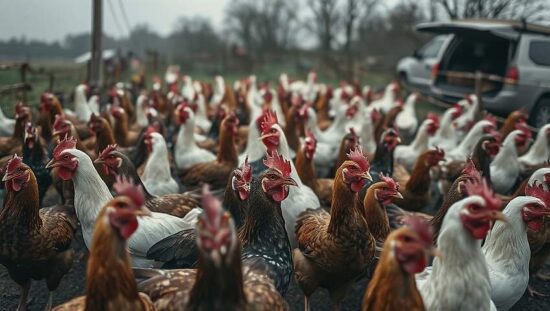Germany and much of Europe are grappling with a rapidly escalating avian influenza crisis, prompting renewed scrutiny of preventative measures and raising concerns about potential economic fallout. According to a spokesperson for the Federal Ministry of Agriculture, the highly contagious disease is currently impacting eight German states – Bavaria, Brandenburg, Mecklenburg-Vorpommern, Lower Saxony, North Rhine-Westphalia, Schleswig-Holstein, Saxony-Anhalt and Thuringia – with the situation demonstrating a marked increase in its dynamic spread.
The Federal Institute for Animal Health (Friedrich Loeffler Institute, FLI) has classified the risk to wild bird populations as high, further complicating containment efforts. Fifteen other EU member states are currently affected, contributing to a broader European challenge with repercussions for international trade and food security.
While officials acknowledge the swift implementation of animal disease control measures by individual states, questions are being raised about the adequacy of existing protocols and the potential for a more coordinated national strategy. The FLI is acting as a central coordinating body, but critics contend this is insufficient to address the cascading effect on diverse farming operations and vulnerable wild bird populations.
The recurring nature of seasonal avian influenza also inevitably leads to trade restrictions on poultry products, impacting both domestic markets and international export agreements. The current compensation scheme of €50 per culled bird, while intended to alleviate the financial burden on farmers, has been deemed by some to be inadequate given the scale of the losses and the long-term consequences for livelihood.
The outbreak highlights a critical vulnerability within the German agricultural sector and underscores the ongoing need for stringent biosecurity practices. The spokesperson emphasized the responsibility of both farmers and state governments in maintaining these standards, but the crisis is prompting a deeper examination of whether current regulatory frameworks are sufficiently robust to prevent future outbreaks and mitigate their impact. The political pressure is mounting to examine and strengthen preventative measures, reassess compensation structures and bolster monitoring and surveillance capabilities to safeguard both the economy and the environment.





